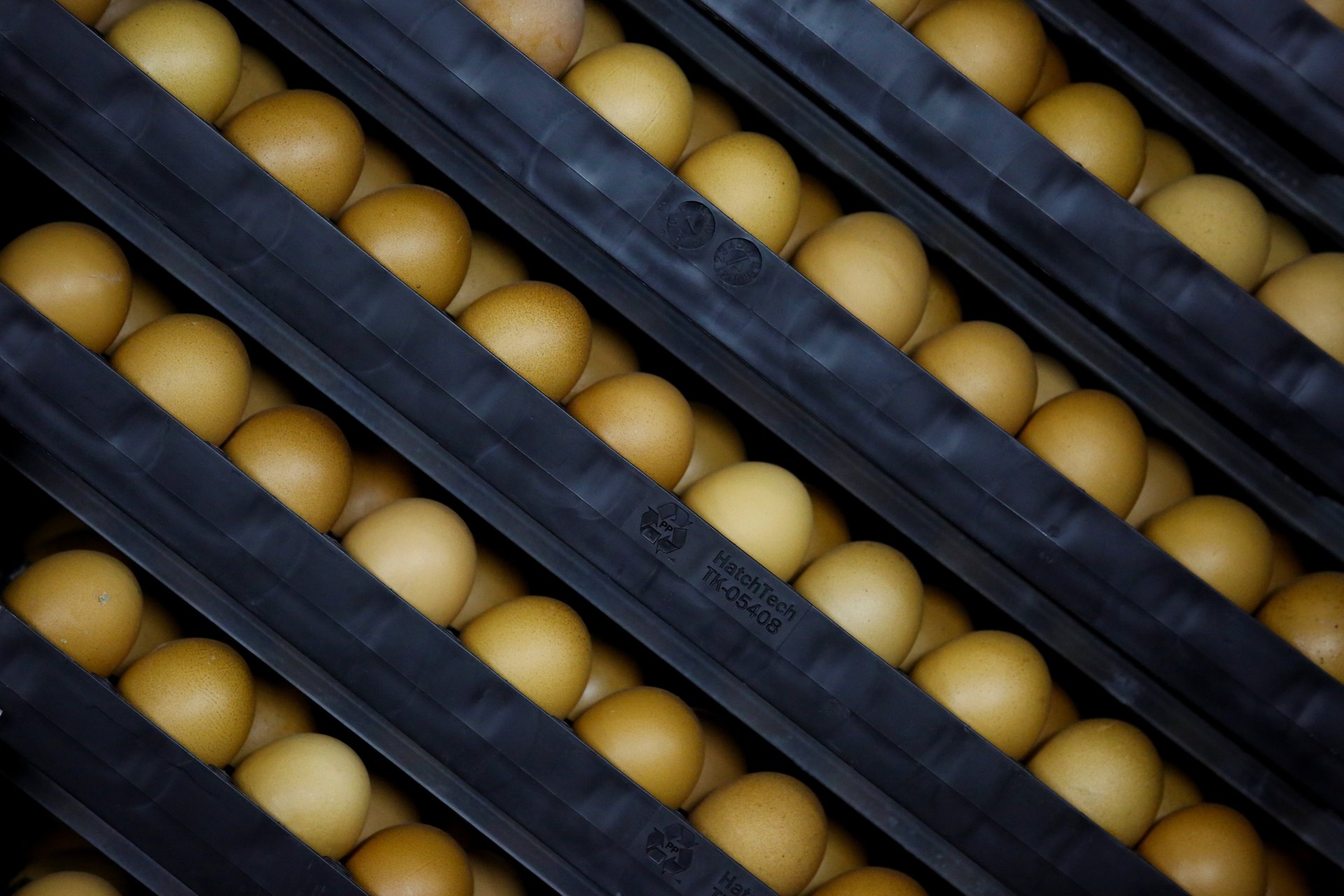Researchers have debunked Goop’s “ancient Chinese” jade vaginal eggs
Goop is having a bit of a bumpy time. Last month, Gwyneth Paltrow’s wellness juggernaut settled a $145,000 consumer protection lawsuit over one of its most infamous products, stone “yoni eggs” mean to be inserted into the vagina. Goop claimed the eggs helped “regulate hormones and menstrual cycles, prevent uterine prolapse, and increase bladder control,” which regulators in California asserted were not scientifically supported claims. While Goop removed the offending language, it continues to sell the products for $55 and $66.


Goop is having a bit of a bumpy time. Last month, Gwyneth Paltrow’s wellness juggernaut settled a $145,000 consumer protection lawsuit over one of its most infamous products, stone “yoni eggs” mean to be inserted into the vagina. Goop claimed the eggs helped “regulate hormones and menstrual cycles, prevent uterine prolapse, and increase bladder control,” which regulators in California asserted were not scientifically supported claims. While Goop removed the offending language, it continues to sell the products for $55 and $66.
Now those eggs are under fire again, this time for their origin story.
Goop first described the benefits of yoni eggs in a now removed article titled “Better Sex: Jade Eggs for Your Yoni.” In it, the “beauty guru/healer/inspiration/friend Shiva Rose” called the eggs a “strictly guarded secret” used by Chinese queens and concubines to strengthen Kegels in order to please emperors sexually. A Goop spokesperson told Quartz last year that the eggs are sourced from Rose, who did not immediately respond to a request for comment for this story.

The study by researchers Jennifer Gunter and Sarah Parcak sought evidence that jade vaginal eggs were recommended or used in sexual health practices in ancient Chinese culture, as the original Goop article claimed. To do so, they analyzed 5,000 jade objects from four major Chinese art and archaeology collections. They found a variety of objects—from jewelry to weapons to furniture—but only found one jade egg (which was from the Russian House of Fabergé and not for vaginal use), and two objects for sexual purposes, a hollow bronze phallus and a jade butt plug. The study also mentioned there was no indication of jade eggs in scholarly writing on sex in ancient China.
Goop had previously filed the egg article under its vague “Ancient Modality” label, which gives the following caveat: “this practice is nearly as old as time—many find value in it, even if modern-day research hasn’t caught up yet (it’s possible the practice will never attract its attention).”
Gunter, a San Francisco based OB/GYN, blogger, and well-known Goop critic, has previously called the eggs “garbage,” and warned against their potential health implications, including the proliferation of bacteria, and issues with excessively contracted vaginal muscles. But she doubts that her latest research will have an impact on whether or not Goop continues to sell the eggs: “Hard data on efficacy and safety does not appear to have an impact on whether GOOP sells a product,” she wrote by email. “They sell a large variety of supplements and are expanding in that area despite the ever-growing body of literature that those products are at best useless and at worst have the potential for harm.”
The study follows a complaint filed against Goop this weekend with the UK’s National Trading Standards and the Advertising Standards Authority. The Good Thinking Society, a non-profit that campaigns against pseudoscience, submitted 113 claims from Goop’s website which it says are in breach of advertising laws. Out of these claims, the complaint highlights a vitamin cocktail Goop sells called “The Mother Load,” noting that it may provide an excess of vitamin A that is potentially dangerous to pregnant women. Dr. Susan Beck, SVP of Goop’s science and research division told Quartz that “when used as recommended, goop’s the Mother Load supplements are safe during pregnancy.”
Goop did not, however, respond to a request for comment regarding its jade egg claims.